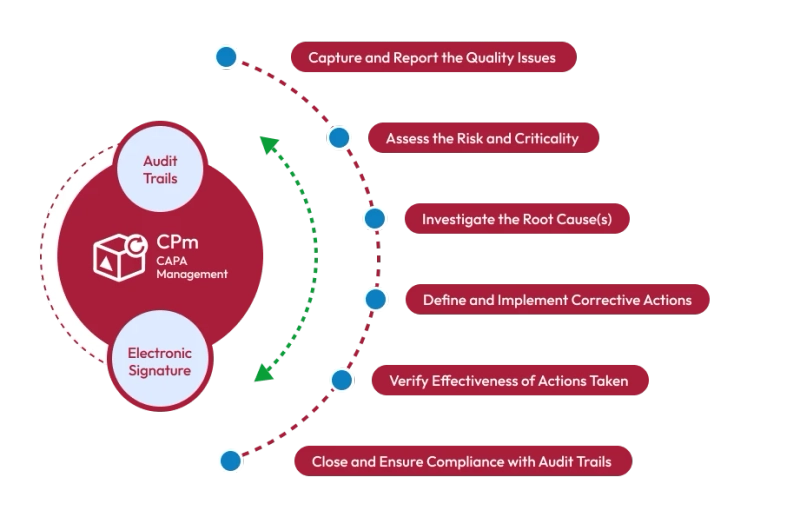In today's fast-paced business environment, identifying and addressing the root causes of problems and incidents is more critical than ever. Root cause analysis is the key to achieving this, allowing organizations to prevent future occurrences and improve overall operations. In addition, by implementing RCA processes, businesses can promote a culture of continuous improvement, mitigate risks, and enhance customer satisfaction.
What is Root Cause Analysis?
Root cause analysis (RCA) is a systematic way of identifying the underlying reasons for a problem. It involves analyzing the contributing factors, conditions, and actions that lead to the occurrence of an issue. By uncovering the root cause, organizations can implement targeted corrective measures and prevent similar problems from arising again. This article explores the significance of root cause analysis in various industries and provides insights into its implementation and benefits.
What are some commonly used root cause analysis techniques?
Standard root cause analysis techniques include the 5 Whys, Fishbone Diagrams (Ishikawa Diagrams), Fault Tree Analysis, and Failure Mode and Effects Analysis (FMEA). These techniques help systematically identify and analyze root causes.
How long does root cause analysis usually take?
The duration of root cause analysis depends on the complexity of the problem or event being investigated. Therefore, analysis length varies based on data, scope, and resources, ranging from hours to weeks.
Is root cause analysis a one-time process?
Root cause analysis is a process that involves iteration and can be repeated as necessary. Organizations may conduct multiple rounds of analysis to delve deeper into complex issues or when new incidents occur.
Can root cause analysis help identify opportunities for innovation?
Yes, root cause analysis can uncover areas for organizational improvement and innovation. Businesses can explore innovative solutions and enhance their competitive advantage by identifying the root causes of inefficiencies or customer pain points.
The Importance of Root Cause Analysis
Root cause analysis is pivotal in various domains, from manufacturing to healthcare. So let's delve into why RCA is crucial for businesses and organizations.
1. Preventing Recurrence
One of the primary reasons to conduct root cause analysis is to prevent the recurrence of problems. By identifying the underlying causes, organizations can address the root issues rather than merely treating symptoms. This proactive approach minimizes the chances of recurring incidents, leading to enhanced operational efficiency and reduced costs.
2. Continuous Improvement
Root cause analysis promotes a culture of continuous improvement within an organization. By focusing on understanding the fundamental causes, businesses can identify areas for improvement and implement targeted changes. This iterative process allows companies to enhance their systems, procedures, and practices, leading to better outcomes and increased customer satisfaction.
3. Risk Mitigation
Analyzing root causes helps identify potential risks and vulnerabilities within an organization. By addressing these underlying issues, businesses can proactively mitigate risks and prevent major incidents from occurring. This safeguards the organization and ensures the well-being of employees, customers, and stakeholders.
4. Data-Driven Decision Making
Root cause analysis relies on data collection and analysis. Organizations can make informed decisions and develop practical solutions using relevant data and information. Data-driven decision-making minimizes guesswork and intuition, allowing for more accurate problem-solving and decision-making processes.
5. Enhancing Quality and Compliance
Root cause analysis is closely linked to quality management and regulatory compliance. Organizations can enhance their products, services, and processes by addressing the underlying causes of quality issues or non-compliance. This leads to improved quality standards, customer satisfaction, and adherence to regulatory requirements.
6. Building a Learning Organization
Root cause analysis fosters a learning culture within an organization. Organizations promote critical thinking and problem-solving skills by encouraging employees to identify and analyze root causes. This empowers individuals to contribute to the organization's continuous improvement efforts and build a collective knowledge base.
Conclusion
Organizations looking to enhance their operations, avoid repeated issues, and promote an environment of ongoing improvement should rely on root cause analysis as a crucial tool. By identifying the underlying causes of problems, businesses can implement targeted solutions, mitigate risks, and enhance customer satisfaction. Whether in manufacturing, healthcare, or other industries, the importance of root cause analysis cannot be overstated. Implementing RCA processes empowers organizations to learn from their mistakes, make data-driven decisions, and drive positive change.
You can use a powerful CAPA Management Software solution like Qualityze to streamline CAPA and RCA processes effectively.


